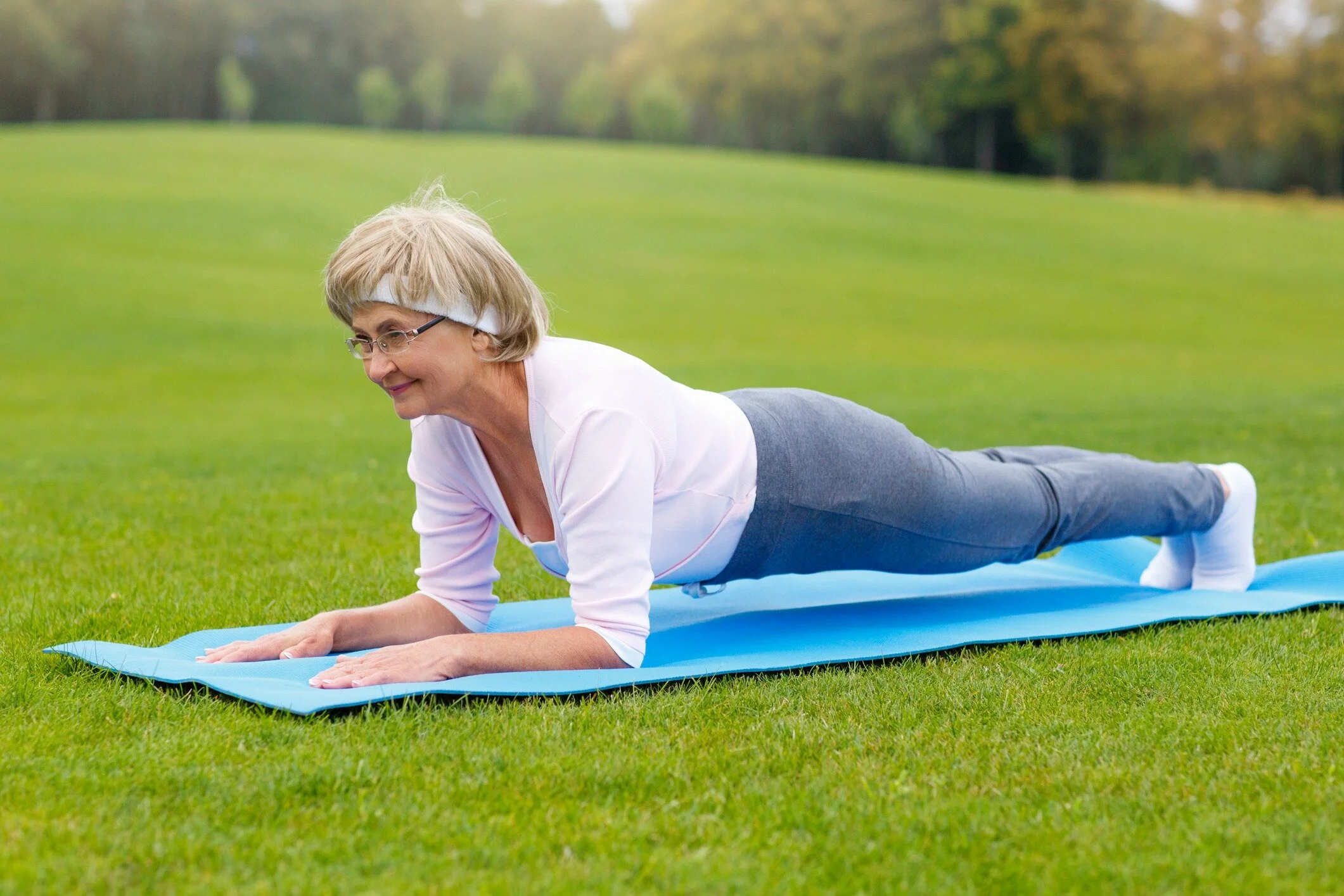Why You Might Want to Add HIIT to Your Yoga Practice: HiYo
By Heather Harrison, MS, CCC-SLP, RYT, YogaGuide Apprentice
Spring is a great time to add High Intensity Intervals into your yoga practice. Not just your Badlands Yoga teacher that think this: it's also backed by science. High Intensity Interval Training (HIIT) is proven effective for increasing your anaerobic capacity and our VO2Max. Say what! Ok, Let's break this down:
1. VO2Max means how much oxygen your body is actually able to use for work. This is considered an excellent, if not best indicator of cardiorespiratory fitness. More Oxygen utilization, better aerobic fitness. (ie "cardio").
2. Anaerobic Capacity is all about power and speed of the muscles. Anaerobic activities are short duration at a high intensity (HIIT Training, Weightlifting, Sprints).
HIIT increases your VO2Max and anaerobic capacity meaning gains in cardiovascular health, speed, strength and endurance.
Research also suggests when adding 4 rounds of work for 30 seconds with 4 rounds of rest at 30 seconds showed increases in cardiovascular functions, weight loss and endurance. Similar studies involving gender have proven that women benefit more rapidly from HIIT than men when measured over a 6-week period utilizing 7-8 rounds of work/rest. HIIT also has modification ability so everybody can utilize.
Ways to incorporate HIIT into your home practice:
You'll need a timer for this- they make timer apps set up for intervals, or you can use any app that allows you to set multiple, potentially differently timed rounds.
The original Tabata study used 20 seconds of maximal effort alternating with 10 seconds of active rest 8 times for a total of 4 minutes. Another study suggests 30 seconds for max effort (always with good form!) alternating with 30 seconds of rest is ideal, for 4 rounds, again for a total of 4 minutes. You can stack these rounds with minutes of rest in between though you don't need to. You could do one round every morning just 4 minutes for all those benefits!) or 2 sessions a week with 2-3 rounds, your choice.
Remember to keep form and core engagement during work sets. First round is always for form and never out yoga your breath. You can use Bhastrika (Bellows Breath) or Lion's Breath.
Example: Plank Intervals (Modification: Knee Plank) like Running Plank, Twisting Plank (a spring favorite!), Plank Waves, Plank Knee taps. Choose one move, maximum 2 moves alternated. For your rest interval, try gentle side or chest expansion and wrist massage. Check out asana spotlight for more detail on Twisting Plank!
Remember, the key to these intervals is the short rest period alternating with maximum safe effort, so unlike the rest of your yoga practice, you should be out of breath! You will be going back to max effort movement before you feel ready. Embrace it for the 4 minutes!
At the end, keep your head above your heart and have a sip of water. Walk or step side to side until your breath recovers enough for ujayyi then continue with your yoga practice. One set is enough, 3 sets in a practice is max.
Other ideas for intervals:
1. Side Plank Intervals (Modification: Knee/Arm): Side Plank Hip Lifts, Plank Rolls, Top Leg Lifts, Side Plank Arm Scoops.
2. Wide Stance Squats (Modification: To your intensity level) Temple Squats, Temple Squat Side Kicks, Story Tellers, Temple Squat Side Steps
3. Push Up Intervals (Modification: Knees) yoga pushups, Reverse Table Dips.
Research and Opinion provided to you in this article is summarized from the following scientifically published articles:
Tabata, Izumi, et. al. "Effects of Moderate-intensity endurance and high intensity intermittent training on anaerobic capacity and VO2Max." Medicine & Science in Sports & Exercise vol 28, no. 10, 1996, pp 1327-1330. https://journals.lww.com/acsm-msse/toc/1996/10000
Schmitz, Boris, et. al. "Sex Difference in High-Intensity Interval Training-Are HIIT Protocols Interchangeable Between Females and Males?” Frontiers in Physiology, 29 January 2020, https://doi.org/10.3389/fphys.2020.00038
Ito, Shigenori. "High-Intensity Interval training for health benefits and care of cardio diseases- The key to an efficient exercise protocol." World Journal of Cardiology vol 11(7), 2019, pp 171-188. https://www.ncbi.nlm.nih.gov/pmc/articles/PMC6763680/



